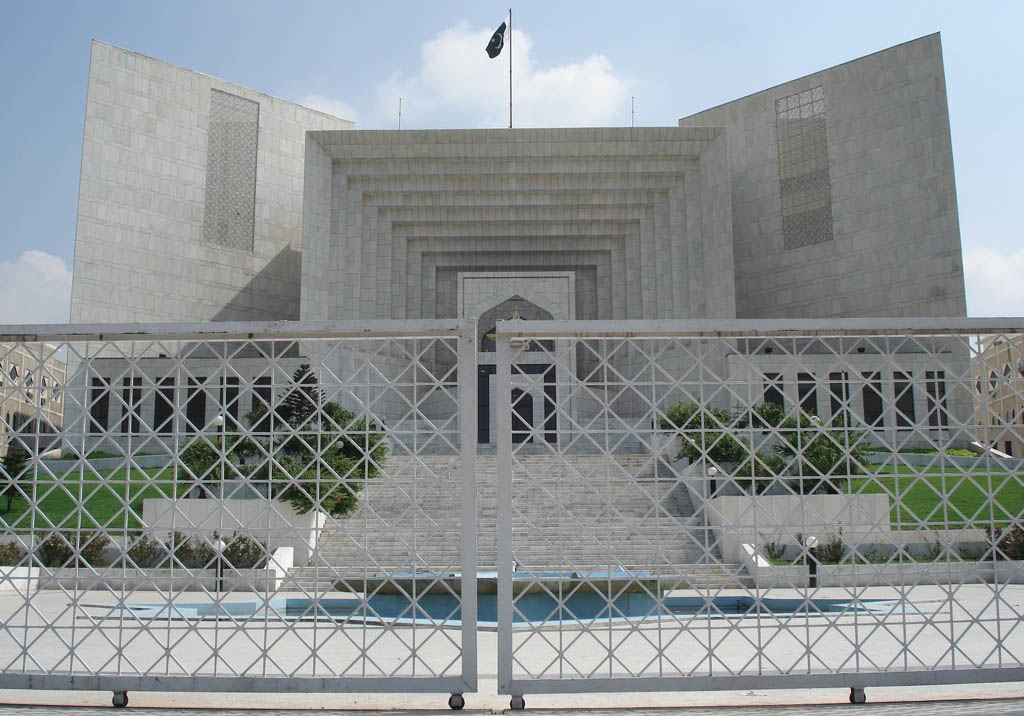In a briefing paper released today, the ICJ provides answers to key questions regarding the legal framework and political context of Pakistan’s move to allow military courts to try civilians for offenses allegedly related to terrorism.
The ICJ is publishing this paper as the Supreme Court of Pakistan (photo) is about to resume hearings (tomorrow), in a constitutional challenge to the newly enacted legal framework granting jurisdiction to military courts to try civilians for terrorism related offences.
The briefing paper analyses the new provisions and military court proceedings in the light of international standards guaranteeing the right to fair trial before independent and impartial courts.
“Pakistan’s new system of ‘military justice’ falls well short of domestic and international fair trial standards, flouts previous Supreme Court rulings, and goes against a regional and global trend of limiting rather than expanding military courts’ jurisdiction,” said Sam Zarifi, ICJ’s Asia director.
Earlier this month, the Chief Justice of Pakistan, Nasir-ul-Mulk, constituted a full-bench of the Supreme Court comprising of all 17 justices to hear over a dozen petitions that argue that the extension of military court’s jurisdiction over civilians is a violation of the right to a fair trial and the independence of the judiciary, and a breach of the principle of separation of powers.
“The failure of the government and military authorities to make public information about the time and place of the trials, the charges against accused persons as well as the procedures used by military courts have confirmed fears of human rights groups and the legal community that the military trials in Pakistan are secret, opaque and violate Pakistan’s domestic and international fair trial obligations,” Zarifi added.
“The Supreme Court has in the past contributed positively to protecting human rights, notably in cases of enforced disappearance and the rights of religious minorities,” he said.
“All eyes are now on the Court to remedy the militarization of justice in progress in Pakistan under the guise of combatting terrorism.”
Background
On 6 January, Pakistan’s Parliament passed the 21st amendment to the Constitution and amendment to the Army Act, 1952, to allow military tribunals to try civilians accused of belonging to “a terrorist group or organization using the name of religion or a sect” carrying out acts of violence and terrorism.
On 2 April, military courts delivered their first set of verdicts under the new legal provisions. Seven accused persons were convicted for undisclosed offences: six were sentenced to death and one was sentenced to life imprisonment.
Contact
Sam Zarifi, ICJ Asia Pacific Regional Director (Bangkok), t: +66 807819002; email: sam.zarifi(a)icj.org
Reema Omer, ICJ International Legal Adviser for Pakistan (London), t: +447889565691; email: reema.omer(a)icj.org
Pakistan -Q and A Military Courts-Advocacy-Analysis Brief-2015-ENG (full text in PDF)

